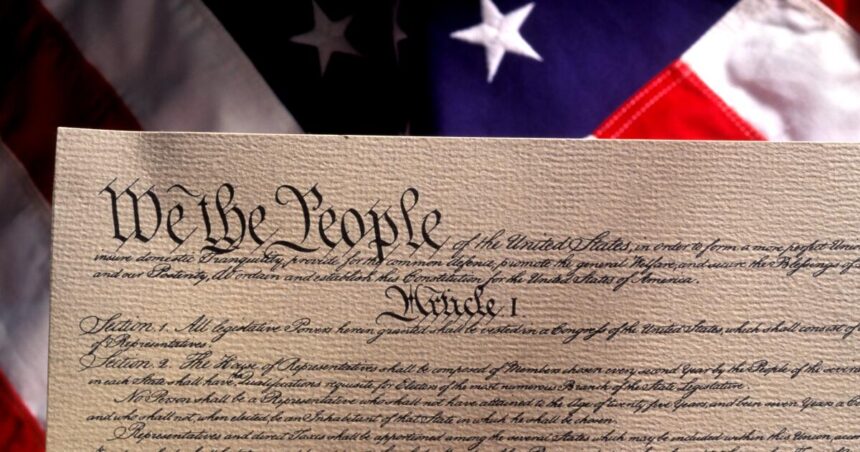Jill Lepore’s latest work, a detailed exploration of the U.S. Constitution, showcases her talents as a historian, legal scholar, and journalist, solidifying her status as a prominent voice in contemporary discussions about American governance. In “We the People: A History of the U.S. Constitution,” Lepore examines the evolution and significance of this foundational document, asserting its status as both a relic and a living entity shaped by enduring ideas.
Opening with a provocative statement, Lepore asserts that while the U.S. Constitution is the oldest and most influential in the world, it is not a static artifact. Instead, it represents a dynamic explosion of ideas. She emphasizes that, although the original parchment may fade, the ideas contained within have the power to endure and transform over time. This sets the stage for her exploration of the Constitution as a document that has continuously evolved to reflect the needs of the republic.
The narrative brings to life the 1787 Philadelphia convention, illuminating the fervent debates among the framers. Lepore details the critical compromises that were established, particularly pointing out Article V, which provides mechanisms for amendment. She notes that this article not only protected the slave trade and granted unequal power in the Senate but also ensured that the Constitution could adapt to the ever-changing landscape of American society.
Throughout the book, Lepore skillfully employs chronological storytelling, intertwining graphs and anecdotes to enrich the narrative. She emphasizes that while the process of amending the Constitution is deliberately challenging, significant changes have often been prompted by times of national crisis. This rhythm of constitutional adaptation—alternating between formal amendments and judicial interpretations—highlights the active engagement of various governmental branches in shaping constitutional law.
“We the People” serves as a companion piece to Lepore’s earlier work, “These Truths,” yet many consider it a more focused and coherent volume. It revisits critical moments in U.S. history through the lens of the Constitution. Beyond routine historical anecdotes, Lepore navigates the complex relationships among significant figures, including James Madison, Frederick Douglass, and the suffragettes, each playing pivotal roles in the ongoing narrative of constitutional evolution.
Lepore’s exposition of the Civil War era is particularly poignant, as she connects the devastation of the war with proposed humanitarian principles embodied in the Lieber Codes, which laid groundwork for international conventions addressing human rights—an urgent reflection on constitutional failures.
The book also explores the role of technology and societal change in constitutional amendments, notably emphasizing the influence of historical figures like Charles Austin Beard, whose controversial interpretations of the framers’ intentions sparked significant debate. Lepore chronicles how amendments have often mirrored technological advancements and societal shifts, reflecting the complexities of American life.
Additionally, she shines a light on the Cold War era and the rise of influential activists, revealing the ongoing struggles for rights among women and minorities amid resistance and societal shifts. Figures like Phyllis Schlafly emerge as critical players, with Lepore assessing their impact on modern constitutional debates.
In a sobering conclusion, Lepore argues that the spirit of compromise that once characterized the constitutional framework is diminishing in contemporary politics, largely due to increasing partisan divisions. With no significant amendments since the 1970s, she critiques the rise of originalism—a legal philosophy that seeks to interpret the Constitution strictly based on the framers’ intentions—arguing that it fails to address the complexities of modern America.
As the nation prepares to celebrate the 250th anniversary of its Constitution, Lepore invites readers to reflect on the ongoing responsibility of citizens to engage with this enduring yet evolving document. Her insights into the Constitution as a living blueprint highlight both the perils and potential for democratic renewal in a rapidly changing world. The book ultimately serves as a clarion call to understand the foundational principles of American governance and to actively participate in its evolution.






